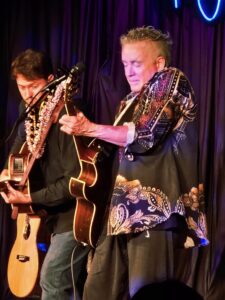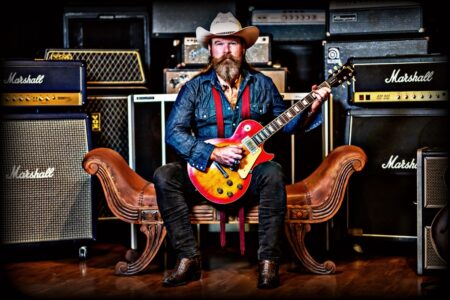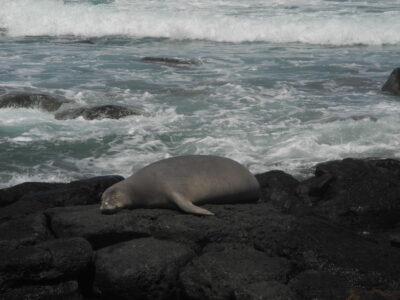Barry Flanagan and Anthony Pfluke team for ProArts Playhouse shows
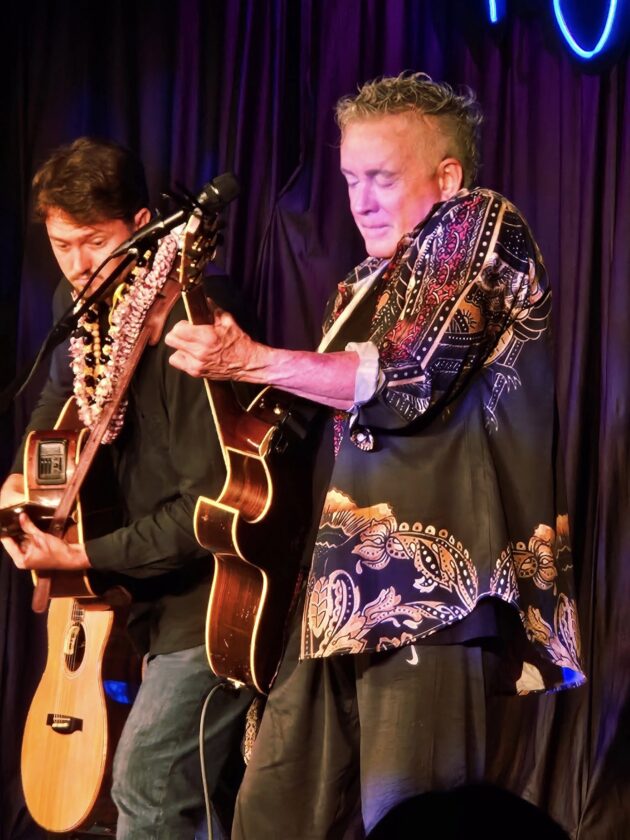
The duo of Barry Flanagan (shown here) and Anthony Pfluke are keeping the Hapa legacy alive. Courtesy photo
Teaming with Barry Flanagan, Anthony Pfluke is helping to keep the legacy of Hapa alive. Recently performing on the West Coast, the duo returns to the ProArts Playhouse for two shows on Aug. 30.
“We are just really excited to keep the Hapa flame burning,” said Pfluke. “I’m so honored to be a part of this new age of Hapa.”
Formed on Maui in 1983 by Flanagan and Keli’i Kaneali’i, Hapa swept the Nā Hōkū Hanohano awards in 1994 for their groundbreaking, self-titled debut album. Winning Best Album of the Year, Group of the Year and Song of the Year, the recording featured “Lei Pikake,” “Ku’u Lei, Ku’u Ipo” and “Olinda Road,” which became island classics.
Defining some of the best of contemporary Hawaiian music, the popular duo excelled at memorable songwriting, magical vocal interplay, stellar musicianship and a refined artistic vision.
In 1997, they returned with another remarkable recording, “In the Name of Love,” featuring standout originals like “Nani Wale O Ka’iulani,” “Kahea V’ilani,” and “Manoa, in the Rain.” Taking its title from the U2 song, the duo brilliantly revamped “In the Name of Love” adding Hawaiian chant by Charles Ka’upu and the words of Martin Luther King Jr.
Over the years, Hapa continued to tour and record with Flanagan joined by Nathan Aweau, recording “Maui,” which won Hōkūs for Album of the Year and Contemporary Hawaiian Album, and then later with Ron Kuala’au.
A Hōku nominee for his album, “We Will Rise,” Pfluke initially met Flanagan at Nalu’s South Shore Grill.
“We connected in 2016 when he started his dinner show with Eric Gilliam at Nalu’s,” he said. “I’ve played there for the past 10 years, and I started opening for him when he started his dinner show. We did that up until COVID and had a lot of great times. I was learning a lot from him over that time, watching his show after my opening set, and getting to play with him. After COVID, we reconnected again, and were just really happy to play again. To be on stage with him, playing Hapa music, is a dream come true.”
Performing a mix of Hawaiian, contemporary, and reggae-influenced songs, Pfluke became entranced with the ukulele as a 10-year-old. In time he studied with former Kamehameha Schools music teacher Rama Camarillo and then learned slack key guitar with Uncle George Kahumoku Jr.
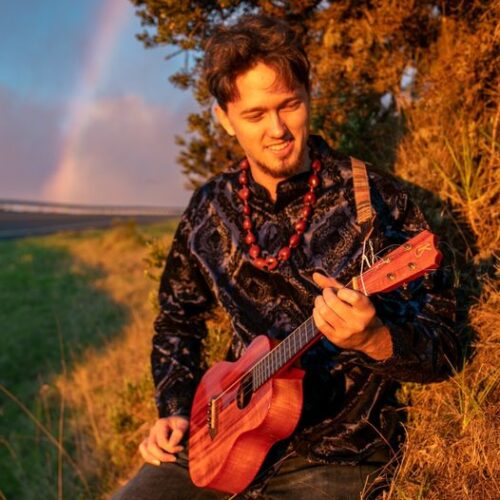
Anthony Pfluke
“Barry’s introduction to Hawaiian music was very inspired by Uncle Gabby Pahinui, and it’s a sound that I love very much, as well as learning from Uncle George,” he noted. “I really feel like my style is kind of a blend between Uncle George and Uncle Barry, being so much influenced by them, especially in those years of refining my sound. They both inspired me in many ways. We both share the same connection of trying to keep the classic Hawaiian music alive, while implementing our own twist on it.”
Drawing from Hapa’s extensive repertoire, the duo also plays “some of my music, and we have a tribute to some of our favorite artists, like Uncle Jerry Santos,” Pfluke said. “We have a couple of Bob Dylan cover songs like ‘Shelter From the Storm.’ Other covers may include Bob Marley’s “Redemption Song” and U2’s “In the Name of Love.”
In late September, Pfluke will team with Henry Kapono in the band The Wave at the MACC. The Wave also includes Tavana, Ryan Perez and Danny Carvalho. “That’s another exciting collaboration I’ve been a part of,” he said. “They’re all amazing musicians in their own right, and it’s a very thick sound with amazing harmonies, and guitar work all around. So it’s going to be really fun to bring that to Maui.”
He has also been collaborating with Kamaka Camarillo. “His father, Rama Camarillo, was one of my first ukulele teachers,” he explained. “I was part of his class in 2012, with Kamaka and Kala’e. They all taught me a few of my first songs. Since then I’ve been able to kind of reconnect with Kamaka and Kala’e, and co-write some music. Together we’re writing new Hawaiian music, in the sense that it is Hawaiian language, but in different genres, and we’ve been having a lot of fun with that.”
In late July, Pfluke and Kamaka Camarillo were featured on a new upbeat Putumayo collection “World Beach Party,” representing Hawaii, performing the song “E Māmā.” The album included artists from Ghana, Brazil, Costa Rica, Samoa and Haiti. “That was the first song that we released together,” he said.
They released the new song “Loyal Man” on Aug. 14. “It’s a song that we wrote together about the importance in holding on to the lands that were here for generations, and to keep Lahaina lands in Lahaina hands, and all throughout Hawaii, that same movement.”


